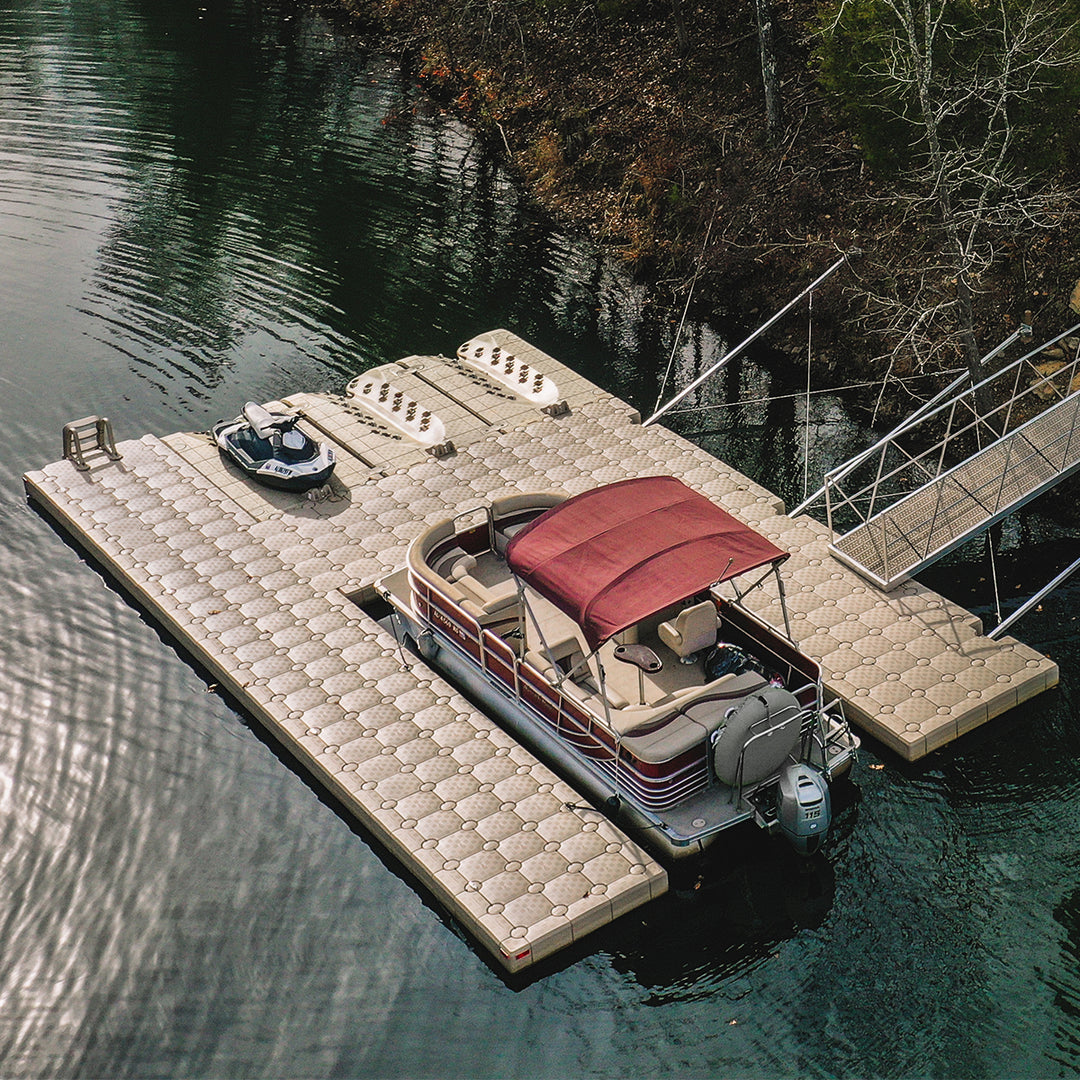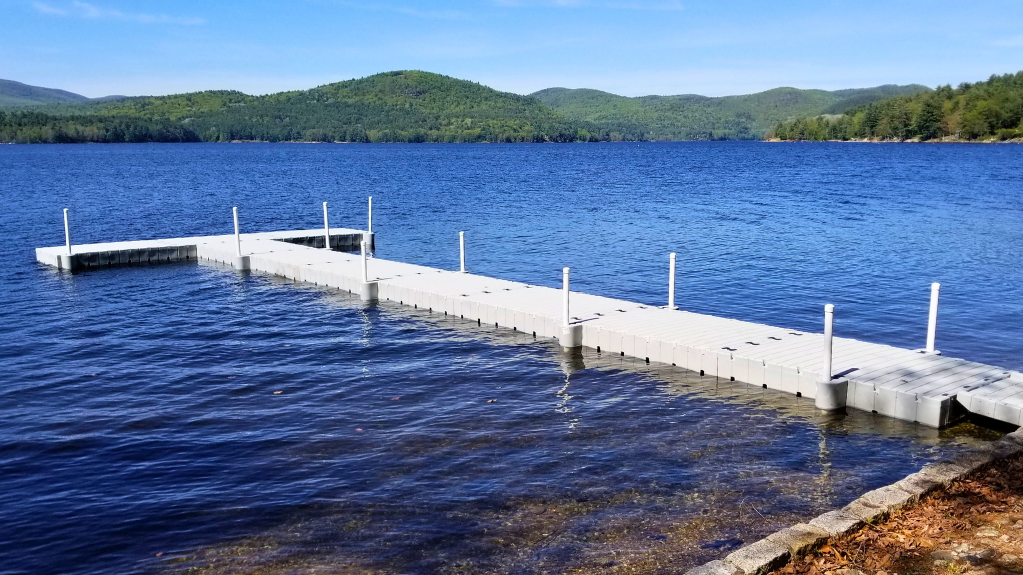Just How Floating Dock Company Competence Can Elevate Your Waterside Experience
Just How Floating Dock Company Competence Can Elevate Your Waterside Experience
Blog Article
Floating Docks: The Suitable Selection for Versatile Water Accessibility
Floating docks present an engaging remedy for a variety of water access requires, offering convenience that goes beyond standard mooring choices. The modular nature of floating docks facilitates personalization, catering to details requirements.
Advantages of Floating Docks
Floating docks offer various benefits that improve water accessibility for various applications. Their capacity to rise and drop with transforming water levels makes them specifically advantageous in settings with fluctuating trends or seasonal variations. This adaptability ensures that vessels can conveniently tie without concern for the water's depth, giving a reliable system for recreational, commercial, and industrial usages.
Furthermore, floating docks are usually constructed from long lasting products that resist deterioration, making them suitable for long-term use in marine environments. Their installment is commonly much less invasive than traditional set docks, lowering the ecological impact and promoting quicker release (floating dock services). This flexibility permits for easier moving or reconfiguration according to individual needs or environmental changes
Security is an additional key benefit; floating docks can offer stable accessibility for individuals boarding or disembarking from watercrafts and minimize the risk of crashes related to unstable surface areas. They can be designed to fit a selection of devices, such as cleats and fenders, boosting capability. On the whole, floating docks represent a reliable solution for boosting water accessibility across diverse fields while promoting safety and environmental sustainability.

Sorts Of Floating Docks
Numerous kinds of floating docks accommodate various needs and atmospheres, each designed with particular attributes to maximize functionality. One of the most typical types include modular docks, which include interlacing sections that enable easy customization and growth. These docks are perfect for leisure use, as they can be customized to fit different watercraft sizes and water conditions.
One more preferred option is the stationary floating dock, which continues to be secured in position yet drifts with altering water levels. floating dock builder. This kind is specifically matched for areas with marginal tidal fluctuations, offering steady gain access to for fishing or swimming. Additionally, there are drive-on docks, which feature a sloped layout that permits watercrafts to conveniently drive on and off, making them ideal for personal watercraft and smaller sized vessels
For commercial applications, durable floating docks are readily available, built from strengthened materials to endure considerable loads and harsh aquatic environments. Environmentally friendly floating docks make use of lasting materials and layouts to lessen environmental effect, typically including functions like greenery to sustain local wild animals. Comprehending the different kinds of floating docks guarantees that customers can choose one of the most proper remedy for their specific demands.
Installment Refine Summary
A successful setup of floating docks calls for cautious preparation and attention to detail to make certain optimum performance and safety and security. The initial step involves analyzing the site conditions, consisting of water deepness, current, and potential obstacles. This analysis informs the option of the proper dock products and design tailored to the specific atmosphere.
Following, getting necessary licenses is important, as numerous jurisdictions have policies this content concerning building on water bodies. The installment can continue once authorizations are protected. Begin by preparing the foundation, which might involve anchoring systems or pilings tailored to the dock type and regional problems.
Following the structure setup, put together the dock areas according to producer requirements. Ensure that all elements are safely attached and lined up to hold up against environmental tensions. Placement the dock in the designated area, ensuring it is degree and steady.

Upkeep Tips and Ideal Practices
After the setup procedure is complete, recurring upkeep plays a crucial function in ensuring the longevity and performance of floating docks. Regular evaluations need to be performed to determine any signs of damage, wear, or wear and tear - floating dock builder. Look for any kind of loose fittings, fractures, or splitting up in the dock areas, as these can jeopardize structural honesty
Cleansing the dock is necessary to eliminate debris, algae, and other accumulation that can impact its look and safety. Make use of a gentle pressure wash regularly to keep sanitation without causing damages to the surface area. Additionally, using a safety sealant every couple of years can assist boost long life and withstand environmental wear.
Take notice of the mooring lines and anchors, guaranteeing they are totally free and safe and secure from rust. Change any type of degraded components without delay to avoid dangers. Seasonal adjustments may also be essential; during extreme climate conditions, strengthening the dock or repositioning can prevent damage.
Applications for Floating Docks
Floating docks offer a wide range of applications, satisfying both leisure and business requirements. In recreational setups, they offer smooth accessibility to waterways for tasks such as boating, angling, and swimming. Their flexible nature permits setup in differing water levels, guaranteeing secure and stable accessibility no matter tidal changes.
Readily, floating docks are crucial for marinas and beachfront companies. They facilitate the docking of vessels, allowing reliable loading and dumping of items. Their modular style permits simple development or reconfiguration to fit transforming organization demands, making them ideal for watercraft rentals, excursion operations, or fishing charters.
Additionally, floating docks are used in ecological applications such as water research study and habitat remediation. They can function as systems for scientific research studies, keeping visit an eye on water high quality, see this page or performing wildlife surveys without troubling sensitive communities.
In industrial contexts, floating docks are used in construction jobs, supplying access to hard-to-reach locations for devices and workers. Their versatility, sturdiness, and very little impact on the atmosphere make them an optimum selection for a broad variety of applications, enhancing both capability and accessibility in different water-based environments.
Verdict
To conclude, floating docks represent an ideal solution for diverse water access needs, owing to their flexibility, toughness, and modular style. These frameworks assist in secure mooring for various applications while reducing ecological effect throughout setup. The decreased maintenance requirements even more boost their functionality. Therefore, floating docks work as a useful property for leisure, industrial, and ecological projects, making sure reputable accessibility to rivers and advertising lasting techniques in water environments.
Floating docks present an engaging service for a variety of water gain access to requires, providing versatility that transcends conventional mooring options.Floating docks deal various benefits that improve water gain access to for numerous applications. In general, floating docks stand for a reliable service for boosting water gain access to throughout varied sectors while promoting safety and environmental sustainability.
One more prominent choice is the fixed floating dock, which continues to be secured in area yet drifts with changing water degrees.In final thought, floating docks represent an optimal option for varied water access needs, owing to their versatility, resilience, and modular layout.
Report this page